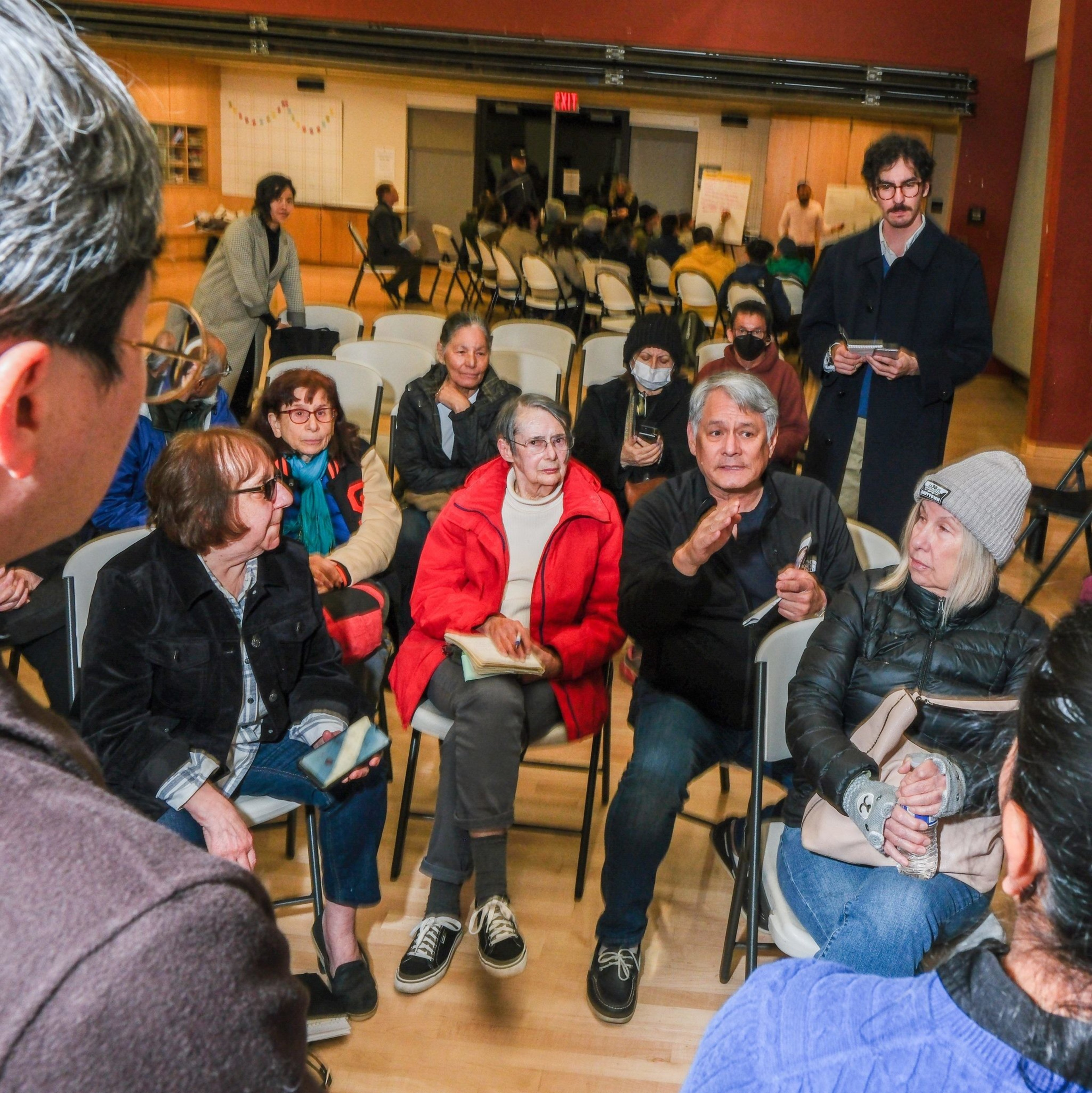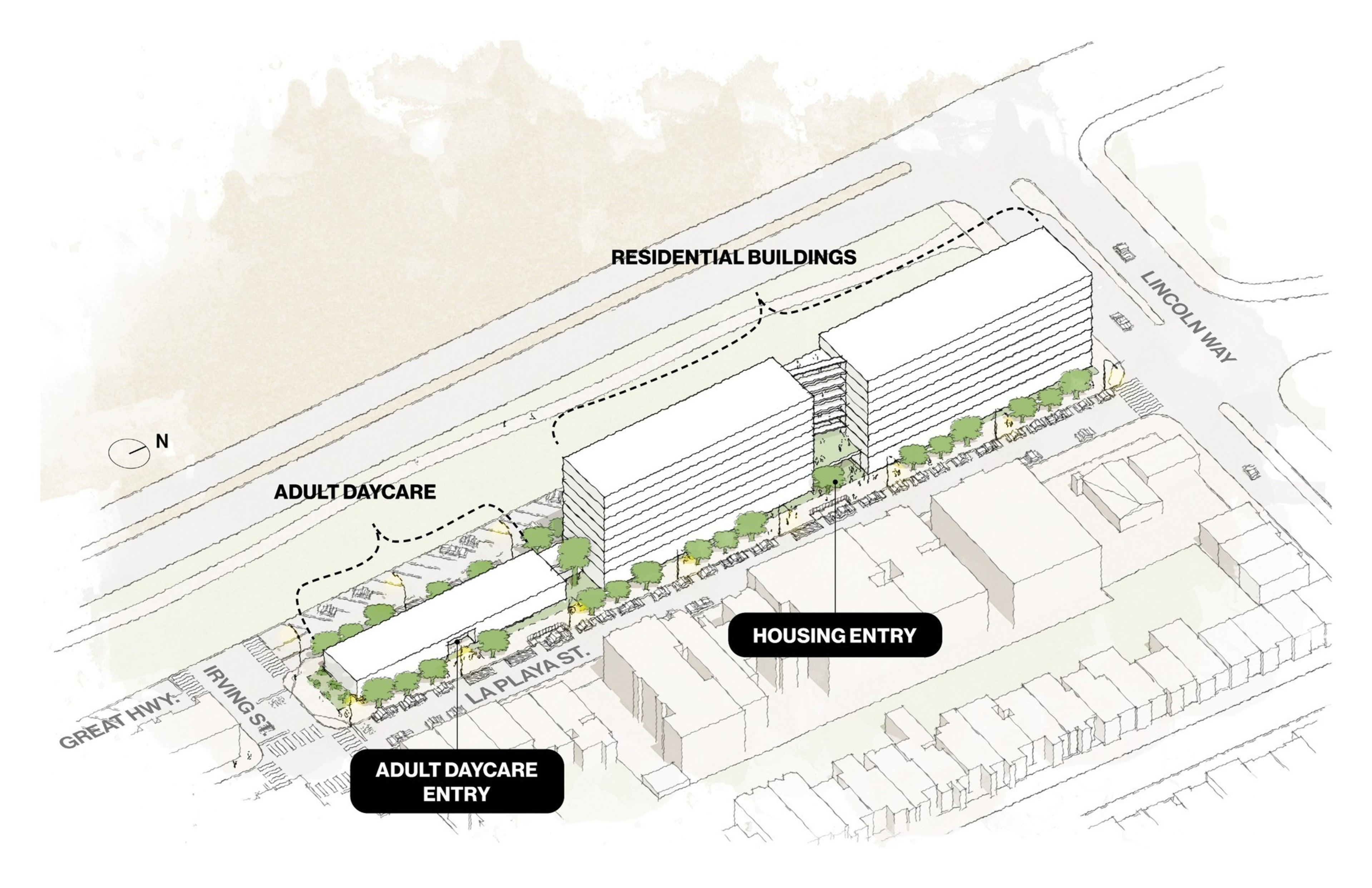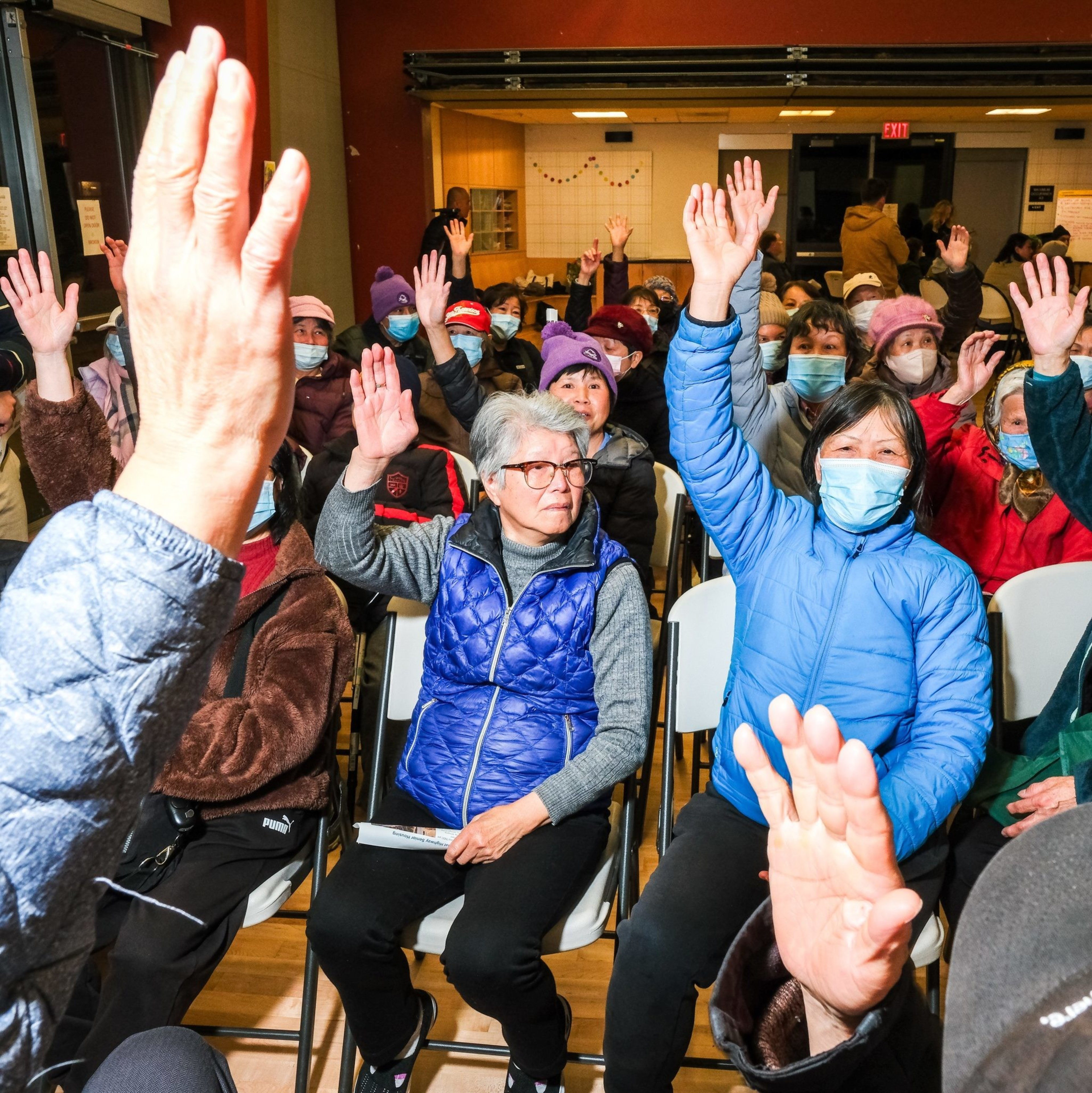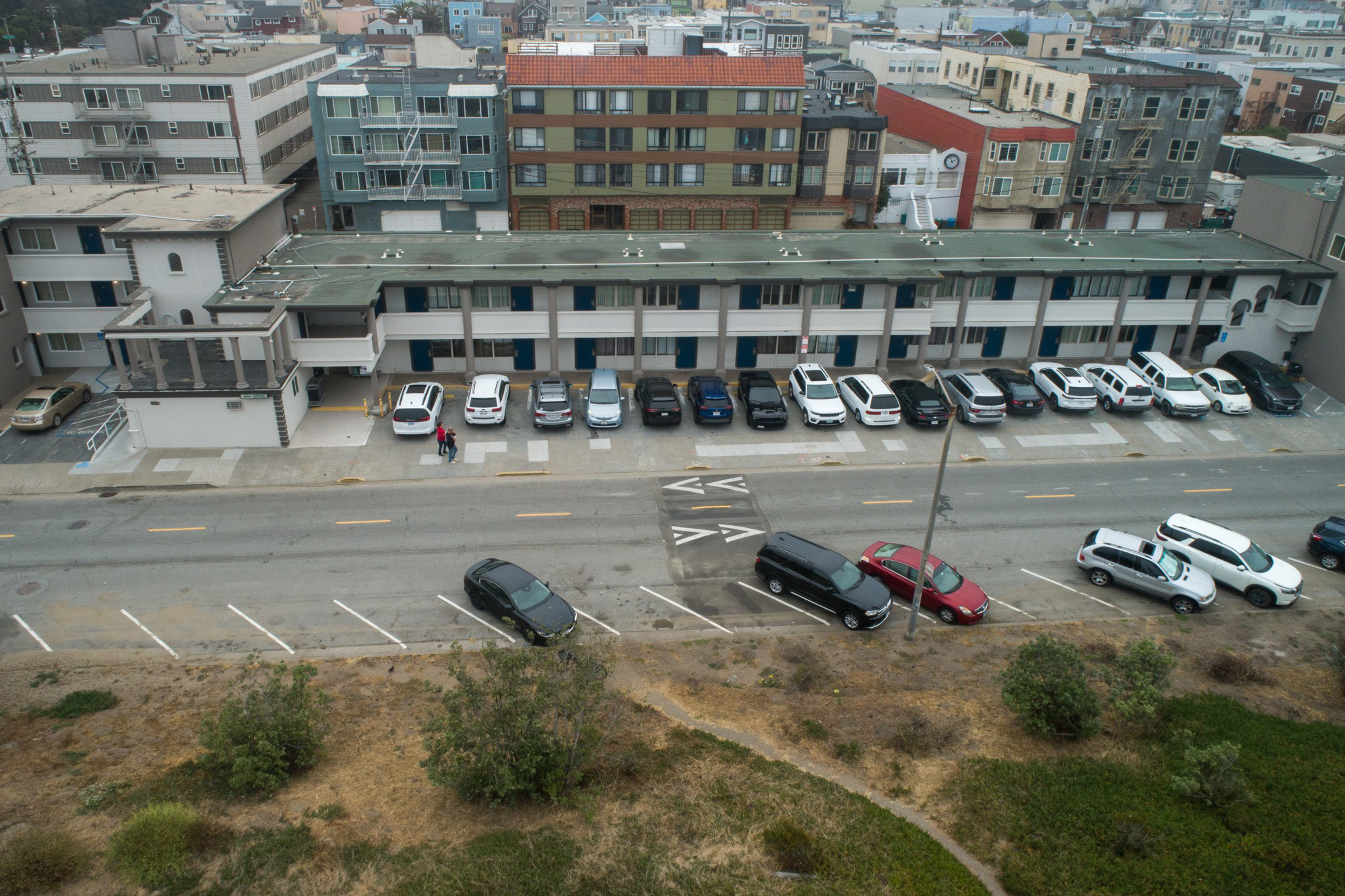A proposal to increase the height of an already controversial affordable housing development for seniors in the Sunset provoked outrage from some residents Monday, while others were eager to see it built.
Many who attended a community meeting were dismayed that although the developer, the Tenderloin Neighborhood Development Corporation, shed 17 affordable units from the project at 1234 Great Highway, the building plan was heightened to eight stories, one more than in earlier designs. That would make it the tallest building in the Outer Sunset.
“If they go up to eight floors, I have no more view, I have no more sunsets,” said Stuart Fong, who lives 10 blocks from the proposed development. “I won’t even see the horizons, and I’ve been there for 35 years.”

All 199 units in the proposed redevelopment of a Motel 6 site would be offered for below market rate and only for seniors; half are to be set aside for formerly homeless people. There would also be an adult daycare center on the site. But the project has become a point of contention for those who oppose development on San Francisco’s west side.
With the passage of Proposition K in November, which will close the Great Highway as soon as this spring, concerns over the project have been turbocharged. Attendees of the meeting at the Sunset Recreation Center complained that the building would strain infrastructure, hinder traffic and parking, obstruct ocean views, and potentially jeopardize safety by including housing for seniors who used to be homeless.

Lisa Arjes, a Sunset homeowner who is working to recall Supervisor Joel Engardio because of his support for Prop. K, worries the project will open the floodgates for bulky apartment buildings in the Sunset.
“Once you have one eight-story, it’s like, ‘Oh, well, the neighborhood already has one, so let’s do another eight-story,” said Arjes. “I’m in favor of affordable housing, but I don’t think we have a housing supply issue, we have an affordability issue.”
Engardio, who was present at the meeting, is a supporter of the project, saying that it will bring much-needed housing to some of San Francisco’s most vulnerable residents.
“We need this housing and it was heartening to see a group of seniors who want to live there show up to express their support,” he said in an email to The Standard. “This project is supported by the Sunset Chinese Cultural District and many of the seniors who want to live there are Chinese-speaking.”
The Tenderloin Neighborhood Development Corporation, which operates other senior housing complexes in the city, has boosted the size of residential buildings under state and city laws. Its plans benefit from AB 2162, which allows supportive housing to bypass some local zoning requirements, and AB 1763, which allows 100% affordable housing developments to receive density bonuses and eliminate height restrictions in certain cases. Additionally, the developers tapped into Cars for Casa, which allows for taller construction when replacing parking lots with housing.

Among the meeting’s roughly 70 attendees was a sizable contingent who said they would like to rent one of the apartments.
“We just can’t wait,” said Grace Chan, 77, who has rented an apartment in Parkside with her husband Henry Chan, 78, for the last decade. “Especially in San Francisco, the rent is so high, and your Social Security income can’t keep up with it. I wish they can speed up the building so we can apply to see if we qualify.”
Around 100 units will be set aside for formerly homeless seniors, approximately 80 will be for extremely low-income senior residents, and the remaining 19 will serve seniors who earn 50%-60% of the median income. The median income in San Francisco last year was $104,900.

The project would be the first in the city to have formerly homeless residents make up more than 20% of tenants, alongside low-income seniors.
The Outer Sunset and Parkside neighborhoods contain almost 10% of the city’s population. However, since 2005, the Outer Sunset has contributed less than 1% of the city’s new housing, according to Dan Sider, chief of staff for the San Francisco Planning Department.
Construction at 1234 Great Highway could start as soon as 2026, with residents moving in by the end of 2028, according to the nonprofit.

Mayor Daniel Lurie’s office did not respond to requests for comment. Lurie has been tight-lipped on the contentious issue of seaside development but was an opponent of Proposition K.
